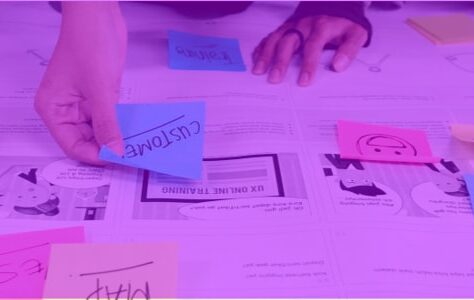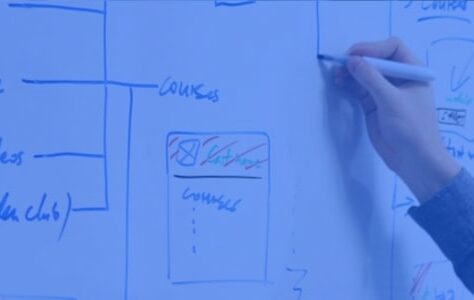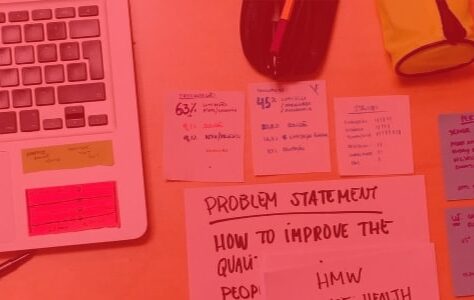Giving your client, your users, or your boss a better idea of what UX entails and requires can make your project more successful.
Working in the field of user experience for a looooooong time, I had  many conversations with different executives. Most of the time, these executives knew how to spell UX, but they didn't know much about it. There are a lot of misconceptions that need to be corrected, and although it is sometimes frustrating, I appreciate having the opportunity to educate these key decision makers about this discipline, and how it works.
many conversations with different executives. Most of the time, these executives knew how to spell UX, but they didn't know much about it. There are a lot of misconceptions that need to be corrected, and although it is sometimes frustrating, I appreciate having the opportunity to educate these key decision makers about this discipline, and how it works.
Here are seven conversation topics that came up while talking with UX managers. All worth pointing out to your boss – especially if you're a UX consultant and your boss is your client:
1 – UX is Repetitive
"What's taking so long?" an impatient CFO once asked me. He expected that the design of the application that my team was creating would be done according to the “first time right – everything right the first time” approach; the idea that we have cycles of recurrence baffled him. I had to explain to him that the process we follow is repetitive, and that we have to refine the project until the right level of quality is reached. He resisted the idea, but the results convinced him that this repetition produces results.
2 – User Research is Vital
“We have already discussed with our users, why do you want to meet them? a project manager wondered at this request. We had to explain to him that a worthwhile UX project requires a full understanding of what people think and feel about it, so we can't just use market research. Having one-on-one conversations with customers allows us to build personas. These characters (personas) represent what we learn about users, and give us “guidelines” that allow us to align our project with user expectations. The project manager finally accepted the results, reluctantly.
3- There is no Standard “UX Process”
Some managers are very process-focused and want to see a 6 Sigma-like UX process approved by a board of UX experts. However, while UX is a mature discipline that has many different defined processes, it is still very flexible. More than a formalized process, UX brings together a series of tactics and approaches. Many design and consulting teams have formalized the process they use, but there is no single UX process that everyone uses. Which in my opinion is a good thing. This allows us to solve specific business and user issues with a flexible set of tools, allowing us to use the right tool for the right problem.
4- UX is not UI
Specifically, UX is not just the user interface. Many executives I've met think UX is all about screen design. It's not true. And in reality, as we move more and more towards a world of connected objects, user experience design is going to be less about screens, and much more about how different systems and processes interact with each other. with the others. Booming UX specialties like service design and content strategy (more focused on process and content design than UI creation) are leading the way.
Even if you're designing an app or website, there's a lot more to it than just designing and documenting the screens. User research, scenarios, storyboards, and of course, usability testing are equally important.
5 – Usability Testing is Extremely Important
“You are experts, why do you need to test the projects you bring to us? That was the question a speaker asked me as we were planning our work.
My response was as follows: Even if you trust the project you created, you are not the user. You can apply best practices, use the right design patterns, and do all the necessary research, you won't know how people will react to the created design until you test it.
The best way to know if you have the right design is to let the user use it, and then let them tell you how it works, without prior instruction or demonstration. If the user likes the product, then you know you have the right design. »
And that answer convinced him, because it's the truth.
6 – Ergonomics is not UX (either)
“You are the experts in ergonomics, tell us what to do. I sometimes think I should start a consultancy called "The Ergonomics Experts" from how many times I hear that comment. Ergonomics is not UX; that's important, but the realm of UX is much broader. Today, because users' expectations are higher since they have the possibility of using more ergonomic and easier to handle applications, ergonomics has become "the major issue", that all UX solutions have to offer.
7 – UX unicorns are rare
“Why do we need a lead, a designer and a graphic designer? Can't we just hire one person to do all of this? A leader once asked me this question while looking at a job posting created for my team. I replied that what he was looking for was a UX Unicorn, an exceptional breed of practitioner, rarely found in the wild.
UX is a broad field, encompassing many different disciplines. Although like the famous Robert Heinlein, I believe that "specialization is for bugs", it is incredibly difficult to become proficient at all levels of UX. And sometimes, specialization is useful and necessary.
Conclusion
There you have it, seven things your bosses should know about our discipline. Hopefully, you can use these points to introduce your superiors to UX and better manage your reporting relationship.
Translation of Joseph Dickerson's original article by UX-Republic
STORYTELLING: THE ART OF CONVINCING # Paris
SMILE Paris
163 quay of Doctor Dervaux 92600 Asnières-sur-Seine
UX/UI ECO-DESIGN # Paris
SMILE Paris
163 quay of Doctor Dervaux 92600 Asnières-sur-Seine
DESIGN THINKING: CREATING INNOVATION # Belgium
UX-REPUBLIC Belgium
12 avenue de Broqueville - 1150 Woluwe-Saint-Pierre
MANAGING AND MEASURING UX # Paris
SMILE Paris
163 quay of Doctor Dervaux 92600 Asnières-sur-Seine
DESIGN SPRINT: INITIATION & FACILITATION # Paris
SMILE Paris
163 quay of Doctor Dervaux 92600 Asnières-sur-Seine
UX-DESIGN: THE FUNDAMENTALS # Belgium
UX-REPUBLIC Belgium
12 avenue de Broqueville - 1150 Woluwe-Saint-Pierre
GOOGLE ANALYTICS 4 #Paris
SMILE Paris
163 quay of Doctor Dervaux 92600 Asnières-sur-Seine
ACCESSIBLE UX/UI DESIGN # Belgium
UX-REPUBLIC Belgium
12 avenue de Broqueville - 1150 Woluwe-Saint-Pierre












